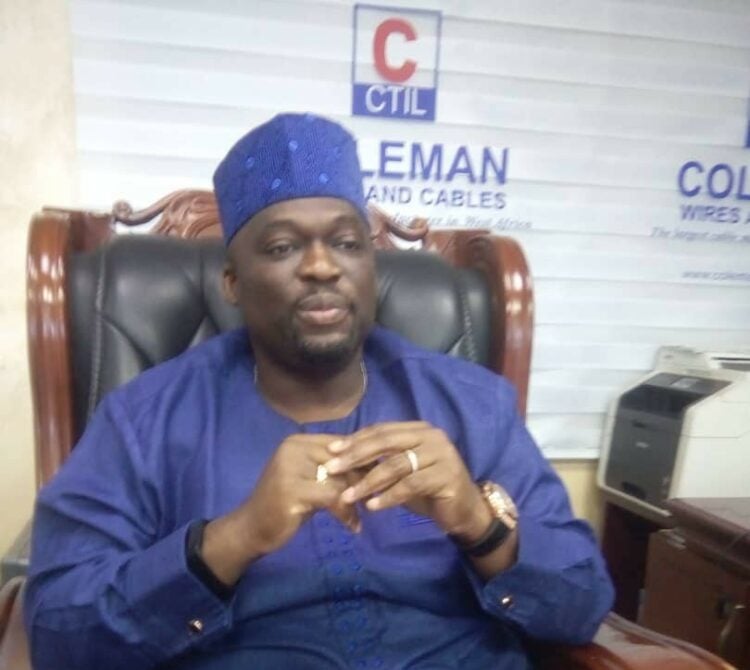The managing director/chief executive officer of Coleman Wires and Cables Industries Limited, Mr. George Onafowokan, has urged stakeholders in Nigeria’s telecom sector to embrace bold, in-country investments to bridge skill gaps and drive indigenous growth.
Speaking at the Stakeholders’ Consultative Forum on Skill Gaps in the Telecom Value Chain, themed ‘Bridging the Telecom Value Chain Skill Gaps — Empowering Indigenous Talents for Industry Growth’, Onafowokan emphasised that becoming an Original Equipment Manufacturer (OEM) in Nigeria requires not just courage but a willingness to defy scepticism.
He stated that “to become an OEM manufacturer here means investing in in-country production, not sitting in India or China and exporting products to Nigeria.”
He cited Coleman’s pioneering efforts in local production, including the establishment of Nigeria’s first fiber optic cable factory in 2022, with a 60,000-kilometre annual capacity. He said that by October 2025, a second plant in Shagamu will be commissioned, boosting total output to over 300,000 cable kilometres annually.
Onafowokan highlighted that Coleman’s venture with global giant Corning is 100 per cent equity-owned and fully Nigerian. Yet, local buyers still tend to prefer imports, saying that “the fibre you buy from us is exactly the same as what you get from Corning anywhere else, only cheaper here.”
As the company celebrates its 50th anniversary this year, Onafowokan stressed that “Coleman’s success has been built on continuous training, retraining, and deliberate capacity building. Currently, the company employs around 800 staff, with fewer than 10 expatriates, and nearly 50 per cent of its cable products are not manufactured elsewhere in Africa.
“Training, retraining, and developing people has been the backbone of our growth. We have deliberately invested in high-technology products, positioning Nigeria as a hub. Our cables touch every sector; telecoms, power, housing, oil and gas, making us a vital part of national development.”











